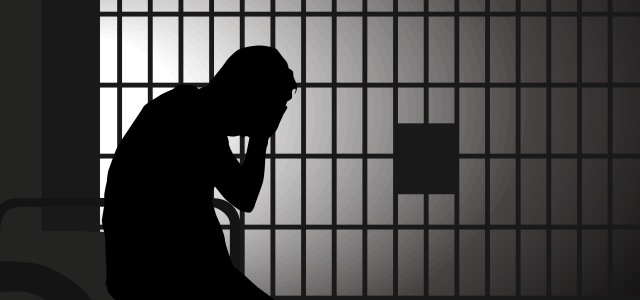![shutterstock_72020650 [Converted]](http://immigrationimpact.com/impact-yeti-1331/wp-content/uploads/2013/10/shutterstock_72020650-Converted.jpg) A dozen years ago, in the days after 9/11, the Metropolitan Detention Center in Brooklyn served as the site of unimaginable horror: twenty-three hour cell confinement; sleep and food deprivation; widespread physical abuse; endless humiliation through sexual harassment and constant strip-searches; and relentless taunting and insults. The subjects of these atrocities were not enemy combatants or even convicted criminals; they were simply a group of noncitizens suspected of minor, non-criminal, immigration offenses. Their primary “offense”: the misfortune of being or appearing to be Muslim or Arab in a post 9/11 world.Represented by the Center for Constitutional Rights, the victims of these injustices brought suit in 2002 against the Department of Justice, prison officials, and others, but through a series of procedural maneuvers, the defendants have yet to stand trial. The Second Circuit Court of Appeals is still considering a variety of preliminary issues that will decide whether the case can go forward and which defendants may face liability. The American Immigration Council and the National Immigration Project of the National Lawyers Guild submitted an amicus brief earlier this month, urging the court to permit the victims to seek remedies for the harms they suffered.
A dozen years ago, in the days after 9/11, the Metropolitan Detention Center in Brooklyn served as the site of unimaginable horror: twenty-three hour cell confinement; sleep and food deprivation; widespread physical abuse; endless humiliation through sexual harassment and constant strip-searches; and relentless taunting and insults. The subjects of these atrocities were not enemy combatants or even convicted criminals; they were simply a group of noncitizens suspected of minor, non-criminal, immigration offenses. Their primary “offense”: the misfortune of being or appearing to be Muslim or Arab in a post 9/11 world.Represented by the Center for Constitutional Rights, the victims of these injustices brought suit in 2002 against the Department of Justice, prison officials, and others, but through a series of procedural maneuvers, the defendants have yet to stand trial. The Second Circuit Court of Appeals is still considering a variety of preliminary issues that will decide whether the case can go forward and which defendants may face liability. The American Immigration Council and the National Immigration Project of the National Lawyers Guild submitted an amicus brief earlier this month, urging the court to permit the victims to seek remedies for the harms they suffered.
One of the primary issues the court is considering is whether the federal officers involved are immune from liability. Under the legal principle known as the Bivens Doctrine, anyone whose constitutional rights were violated by officers or employees of the federal government may file a lawsuit for damages. The purpose of Bivens is deterrence: by subjecting federal officers to liability for their actions, Bivens helps to prevent constitutional violations from happening in the first place.
The victims’ allegations in this case overwhelmingly suggest that deterrence is needed. According to plaintiffs, during the course of their confinement, federal officials engaged in an undisguised effort to harm them in the mistaken belief that their ethnicity and religion equated with “terrorism.” In so doing, these officials trampled on the plaintiffs’ basic constitutional rights – including the right to be free from unreasonable searches and seizures and the right to the free exercise of religion. Their actions were completely repugnant to the purpose and protection of the Constitution. In fact, two reports issued by the DOJ Office of the Inspector General support many of the victims’ allegations. One of the reports documents the physical and verbal abuse inflicted on detainees at the Metropolitan Detention Center. The other report details the round-up of 762 Muslim and Arab non-citizens after 9/11 on the pretext of immigration violations and the government’s “hold until cleared policy,” which resulted in lengthy detention, even where there was no evidence that they posed a danger or a flight risk.
The importance of permitting plaintiffs’ lawsuit to go forward cannot be understated. The realities of a post 9/11 world are obvious: compromises between security and liberty have often limited the latter. But federal officials do not have a blank check to dispense with constitutional protections as they please. Recognizing the plaintiffs’ claim here will send a clear message—precisely the message the Bivens Doctrine was intended to send—and will help to prevent future horrors.
Finally, because justice delayed is no justice at all, it is critical that the plaintiffs be granted redress now. After more than a decade of seeking justice, the plaintiffs must finally be afforded some closure, and have the opportunity to heal their wounds and move on from this dark, tragic chapter in our country’s history.
FILED UNDER: 9/11, Abuse, Bivens Doctrine, Department of Justice, Immigration Law


